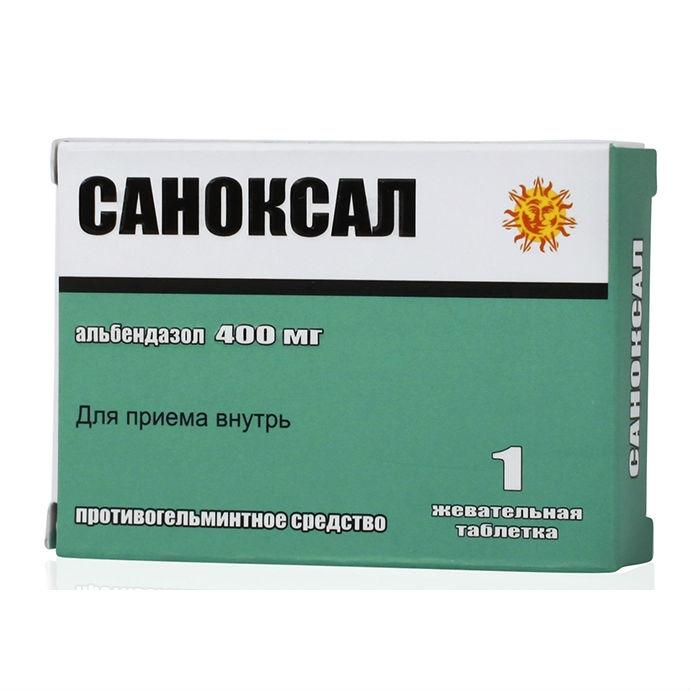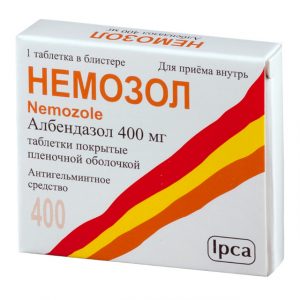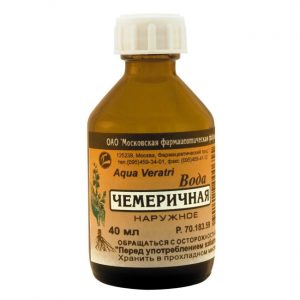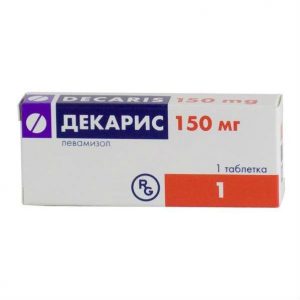Description
Release form
chewable tablets
Packing
1 pc
Pharmacological action
Sanoxal – anthelmintic and antiprotozoal agent. Selectively inhibits the polymerization of beta-tubulin, which leads to the destruction of the cytoplasmic microtubules of the cells of the intestinal tract of helminths, changes the course of biochemical processes (inhibits the utilization of glucose), blocks the movement of secretory granules and other organelles in the muscle cells of roundworms, causing their death. Most effective against larval forms of cestodes – Echinococcus granulosus and Taenia solium nematodes – Strongyloides stercolatis.
Pharmacokinetics
Absorption
After oral administration, it is poorly absorbed from the gastrointestinal tract due to poor solubility in water. The drug is rapidly metabolized during the first passage through the liver, therefore, the plasma concentrations of albendazole unchanged are negligible and are not determined. Oral bioavailability is low. However, the simultaneous intake of fatty foods significantly increases the absorption and concentration of albendazole in blood plasma (5 times). Cmax of albendazole sulfoxide is achieved after 2-5 hours.
Distribution of
Plasma protein binding is 70%. Albendazole is well distributed in the body, reaching high concentrations in urine and bile, liver, wall and fluid of parasitic cysts, cerebrospinal fluid.
Metabolism
Albendazole is rapidly metabolized in the liver to form the primary metabolite, albendazole sulfoxide, which also has anthelmintic activity. Albendazole sulfoxide, in turn, is converted to albendazole sulfone (a secondary metabolite) and other oxidized products lacking pharmacological activity.
Albendazole is an inducer of microsomal CYP1A2 enzymes in human liver cells.
Excretion of
T1 / 2 albendazole sulfoxide is 8-12 hours. The drug is excreted in the form of various metabolites in urine and bile, while renal excretion is negligible (less than 1%).
Pharmacokinetics in special clinical cases
Against the background of liver damage, the bioavailability of albendazole increases. Cmaxalbendazole sulfoxide increases by 2 times, and T1 / 2 lengthens.
In patients with impaired renal function, the clearance of albendazole and its metabolites does not change.
Indications
neurocysticercosis, caused by the larval form of porcine tapeworm (Taenia solium)
echinococcosis of the liver, lungs, peritoneum, caused by the larval form of canine tapeworm (Echinococcus granulosus)
nematodoses: ascariasis, trichocephalosis, ankylostyloidiasis, stenosis, encyclidiasis, stenosis, encyclidosis, stenosis, microsporidiosis
mixed helminthiases
as an aid in the surgical treatment of echinococcosis cysts.
Contraindications
children under 3 years of age
hypersensitivity to the components of the drug
hypersensitivity to other benzimidazole derivatives.
Precautions: inhibition of bone marrow hematopoiesis, liver failure, cirrhosis, cysticercosis involving the retina.
Pregnancy and lactation
Pregnancy is not recommended, unless alternative treatment is possible. Before starting treatment, women of childbearing age are tested for absence of pregnancy. During and within a month after the end of treatment, reliable contraception is mandatory.
With extreme caution, the drug is prescribed during breastfeeding.
Composition
1 tablet contains:
Active ingredient: albendazole 400 mg sr dlkp Excipients: sucrose – 382 mg, lactose – 200 mg, sodium benzoate – 1 mg, dye sunny sunset yellow (dye sunset yellow) – 0.2 mg, purified water – 0. 1 mg, magnesium stearate – 6 mg, talc – 10.6 mg, peppermint flavor (peppermint essence) – 0.008 mg, menthol (levomenthol) – 0.2 mg.
Dosage and administration of
The drug is taken orally. The dose is set individually, depending on the type of helminth and the patient’s body weight.
With neurocysticercosis and echinococcosis, patients weighing 60 kg and more are prescribed 400 mg 2 times a day, with a body weight of less than 60 kg – at a dose of 15 mg / kg / day in 2 divided doses. The maximum daily dose is 800 mg. The course of treatment for neurocysticercosis is 8-30 days, for echinococcosis – 3 cycles of 28 days with a 14 day break between cycles. With surgical treatment, the duration of drug treatment is 3 courses.
With ascariasis, trichocephalosis, enterobiasis, hookworm adults and children over 3 years old – 400 mg once, if necessary, repeat after 3 weeks.
For giardiasis, adults and children over 3 years old – 400 mg once a day for 3 days.
In case of strongyloidosis and cestodosis, adults and children over 3 years old – 400 mg once a day for 3 days, if necessary, repeat after 3 weeks.
Tablets can be chewed or swallowed whole.
Side effects of the
Digestive system: impaired liver function with a change in functional liver tests (mild or moderate increase in transaminase activity), abdominal pain, nausea, vomiting.
From the hemopoietic system: inhibition of bone marrow hematopoiesis (leukopenia, granulocytopenia, agranulocytosis, thrombocytopenia, pancytopenia).
From the nervous system: headache, dizziness, meningeal symptoms.
Allergic reactions: skin rash, itching.
Other: fever, high blood pressure, acute renal failure, reversible alopecia.
Drug Interaction
When co-administered with dexamethasone, cimetidine, praziquantel increase the concentration of albendazole sulfoxide in the blood.
Overdose
Treatment: gastric lavage, activated carbon intake, symptomatic therapy.
Storage conditions
In a dry, dark place, at a temperature not exceeding 25 ° C.
Shelf suitability
3 Year
Deystvuyuschee substances
Albendazole
Dosage
form Dosage form
resorption tablets




